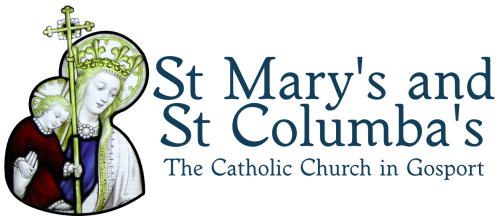Eucharistic Ministers

“The Eucharist is the vital centre of all that the Church is and does. At its heart is the real presence of the crucified, risen and glorified Lord, who continues his saving work among us. The Second Vatican Council reminded us: ‘the most holy Eucharist holds within itself the whole spiritual treasure of the Church, namely Christ himself, our Passover and our living bread’”
(One Bread One Body n.3)
Extraordinary Ministers of Holy Communion (EMHC) assist Fr Matthew in distributing the Body and the Blood of Christ at Mass; to the sick at home; and to the housebound. Whether at Mass or in other special situations, the EMHC enables the recipient to share the Communion of the entire Body of Christ i.e. the Church, and share in the effects of the abiding Communion of love of the Triune God i.e. the Father, Son & Holy Spirit.
They are termed “Extraordinary Ministers” to distinguish them from the Ordinary Ministers of Holy Communion (bishops, priests and deacons). They are invited to serve in this ministry at the invitation of the parish priest and with the approval of the Bishop.
General Principles of Ministry of Holy Communion
In every celebration of the Eucharist, there should be a sufficient number of ministers of Holy Communion so that it may be distributed in a reverent and orderly manner. Bishops, priests and deacons distribute Holy Communion in virtue of their office as ordinary ministers of the Body and Blood of the Lord.
When the size of the congregation or the incapacity of the bishop, priest, or deacon requires it, the celebrant may be assisted by other bishops, priests, or deacons. If such ordinary ministers of Holy Communion are not present, “the priest may call upon extraordinary ministers to assist him, i.e., duly instituted acolytes or even other faithful who have been deputed for this purpose. In case of necessity, the priest may also depute suitable faithful for this single occasion (General Instruction of the Roman Missal n.162).”
Extraordinary Ministers of Holy Communion should receive sufficient spiritual, theological, and practical preparation to fulfill their role with knowledge and reverence. In all matters they should follow the guidance of the diocesan bishop. When recourse is had to Extraordinary Minister of Holy Communion, especially in the distribution of Holy Communion under both kinds, their number should not be increased beyond what is required for the orderly and reverent distribution of the Body and Blood of the Lord. In all matters such Extraordinary Ministers of Holy Communion should follow the guidance of the diocesan bishop (IBID).
All ministers of Holy Communion should show the greatest reverence for the Most Holy Eucharist by their demeanor, their attire, and the manner in which they handle the consecrated bread or wine. Should there be any mishap–as when, for example, the consecrated wine is spilled from the chalice–then the affected “area . . . should be washed and the water poured into the sacrarium [GIRM, 280].”
Want to know more?
Anyone interested should contact the Parish Office in the first instance.
